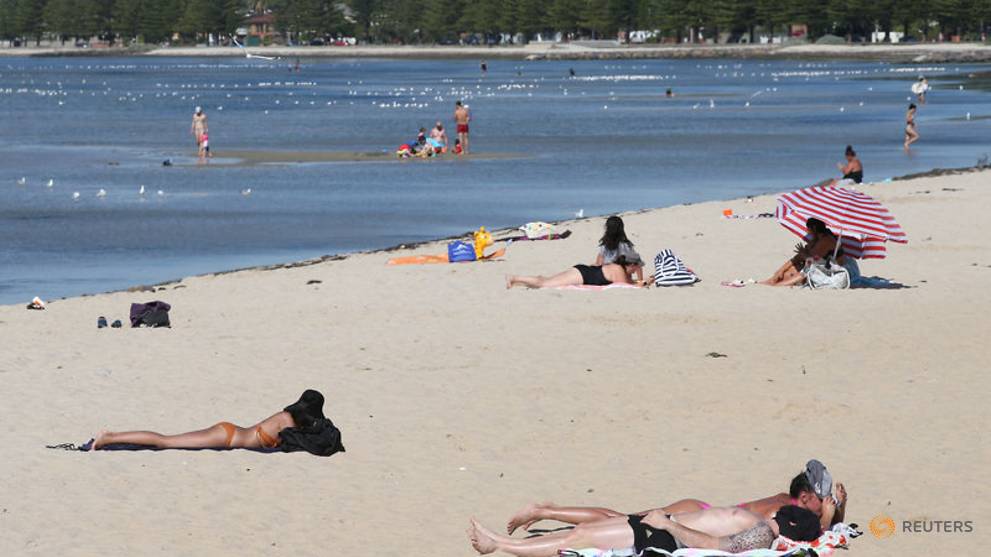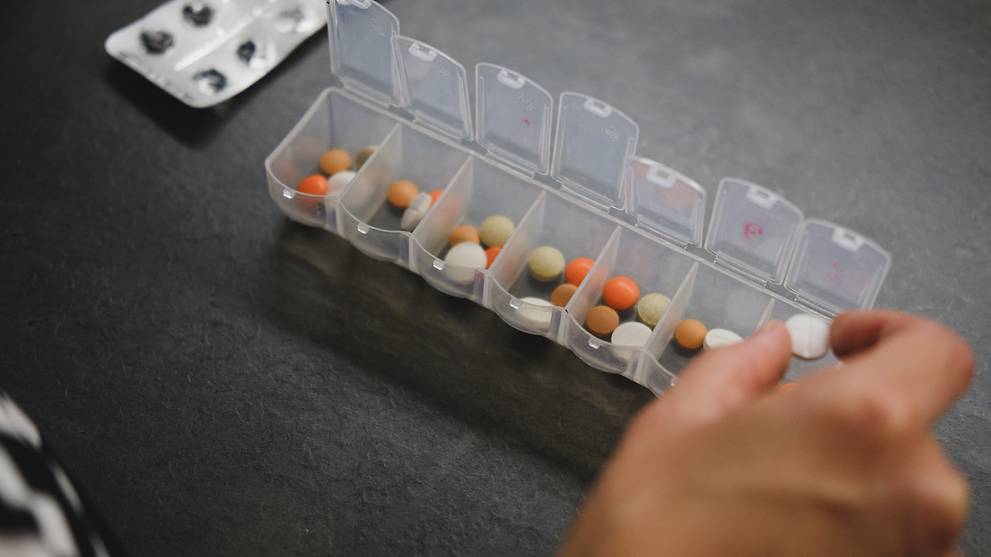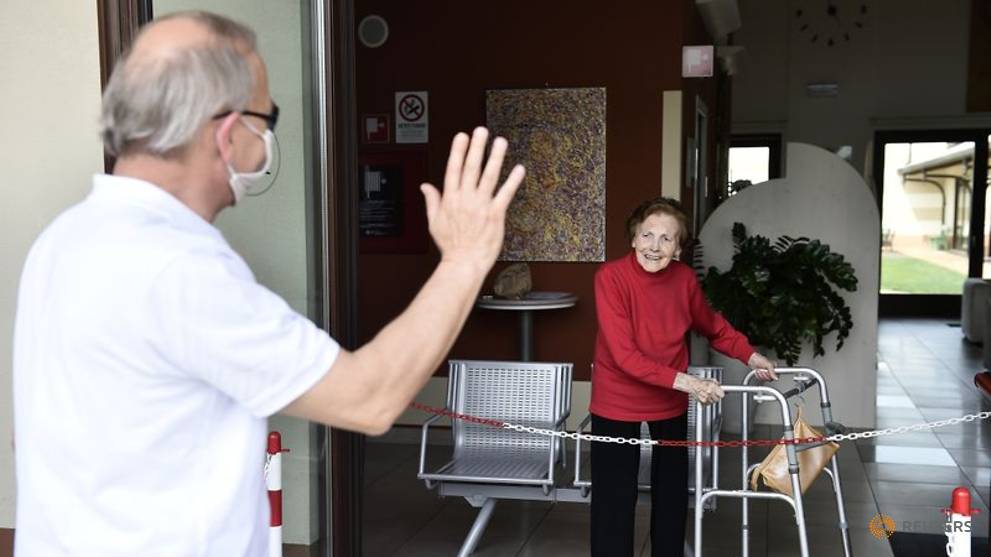
Commentary: Can Vitamin D protect you from COVID-19? There may be something to it
by Elina HypponenWhile early research is interesting, much of it may be circumstantial, says an observer.
ADELAIDE: Recent headlines have suggested Vitamin D deficiency could increase the risk of dying from COVID-19, and in turn, that we should consider taking Vitamin D supplements to protect ourselves.
Is this all just hype, or could Vitamin D really help in the fight against COVID-19?
VITAMIN D AND THE IMMUNE SYSTEM
At least in theory, there may be something to these claims.
Nearly all immune cells have Vitamin D receptors, showing Vitamin D interacts with the immune system.
READ: Commentary: Can vitamin C really help with your cold or even COVID-19?
The active Vitamin D hormone, calcitriol, helps regulate both the innate and adaptive immune systems, our first and second lines of defence against pathogens.
And Vitamin D deficiency is associated with immune dysregulation, a breakdown or change in the control of immune system processes.
Many of the ways calcitriol affects the immune system are directly relevant to our ability to defend against viruses.
For example, calcitriol triggers the production of cathelicidin and other defensins – natural antivirals capable of preventing the virus from replicating and entering a cell.
READ: Commentary: Can you catch the coronavirus twice?
Calcitriol can also increase the number of a particular type of immune cell (CD8+ T cells), which play a critical role in clearing acute viral infections (such as influenza) in the lungs.
Calcitriol also suppresses pro-inflammatory cytokines, molecules secreted from immune cells which, as their name suggests, promote inflammation. Some scientists have suggested Vitamin D might help to alleviate the “cytokine storm” described in the most severe COVID-19 cases.
THE EVIDENCE
Evidence from randomised controlled trials suggests regular Vitamin D supplementation may help protect against acute respiratory infections.

A recent meta-analysis brought together results from 25 trials with more than 10,000 participants who were randomised to receive Vitamin D or a placebo.
It found Vitamin D supplementation reduced the risk of acute respiratory infections, but only when it was given daily or weekly, rather than in a large single dose.
The benefits of regular supplementation were greatest among participants who were severely Vitamin D deficient to begin with, for whom the risk of respiratory infection went down by 70 per cent. In others the risk decreased by 25 per cent.
READ: Commentary: Is loss of smell or taste an early sign of the COVID-19?
Large one-off (or “bolus”) doses are often used as a quick way to achieve Vitamin D repletion. But in the context of respiratory infections, there were no benefits if participants received high single doses.
In fact, monthly or annual Vitamin D supplementation has sometimes had unexpected side effects, such as increased risk of falls and fractures, where Vitamin D was administered to protect against these outcomes.
It’s possible intermittent administration of large doses may interfere with the synthesis and breakdown of the enzymes regulating Vitamin D activity within the body.
READ: Commentary: Can chloroquine really treat COVID-19?
VITAMIN D AND COVID-19
We still have relatively little direct evidence about the role of Vitamin D in COVID-19. And while early research is interesting, much of it may be circumstantial.
For example, one small study from the United States and another study from Asia found a strong correlation between low Vitamin D status and severe infection with COVID-19.
But neither study considered any confounders.

In addition to the elderly, COVID-19 generally has the greatest consequences for people with pre-existing conditions.
Importantly, people with existing medical conditions are also often Vitamin D deficient. Studies assessing ICU patients have reported high rates of deficiency even before COVID-19.
So we would expect to see relatively high rates of Vitamin D deficiency in seriously ill COVID-19 patients – whether Vitamin D has a role or not.
Some researchers have noted high rates of COVID-19 infections in ethnic minority groups in the UK and US to suggest a role for Vitamin D, as ethnic minority groups tend to have lower levels of Vitamin D.
READ: Commentary: COVID-19 vaccine – why is it taking so long to develop one?
READ: Commentary: Infecting volunteers with COVID-19 may speed up vaccine development
However, analyses from the UK Biobank did not support a link between Vitamin D concentrations and risk of COVID-19 infection, nor that Vitamin D concentration might explain ethnic differences in getting a COVID-19 infection.
Although this research adjusted for confounders, Vitamin D levels were measured 10 years earlier, which is a drawback.
Researchers have also suggested Vitamin D plays a role by looking at the average Vitamin D levels of different countries alongside their COVID-19 infections. But in the hierarchy of scientific evidence, these types of studies are weak.
SHOULD WE TRY TO GET MORE VITAMIN D?
There are several registered trials on Vitamin D and COVID-19 in their early stages. So hopefully in time we’ll get some more clarity about the potential effects of Vitamin D on COVID-19 infection, particularly from studies using stronger designs.

In the meantime, even if we don’t know whether Vitamin D can help mitigate the risk of or outcomes from COVID-19, we do know being Vitamin D deficient won’t help.
It’s difficult to get enough Vitamin D from food alone. A generous portion of oily fish can cover much of our need, but it’s neither healthy nor palatable to eat this every day.
We may get most of our Vitamin D from the sun. The amount of exposure we need to get enough Vitamin D is generally low, only a few minutes during the summer.
If you don’t think you’re getting enough Vitamin D, speak to your GP. They may recommend incorporating daily supplements into your routine.
BOOKMARK THIS: Our comprehensive coverage of the coronavirus outbreak and its developments
Download our app or subscribe to our Telegram channel for the latest updates on the coronavirus outbreak: https://cna.asia/telegram
Elina Hypponen is Professor of Nutritional and Genetic Epidemiology at the University of South Australia. This commentary first appeared on The Conversation.